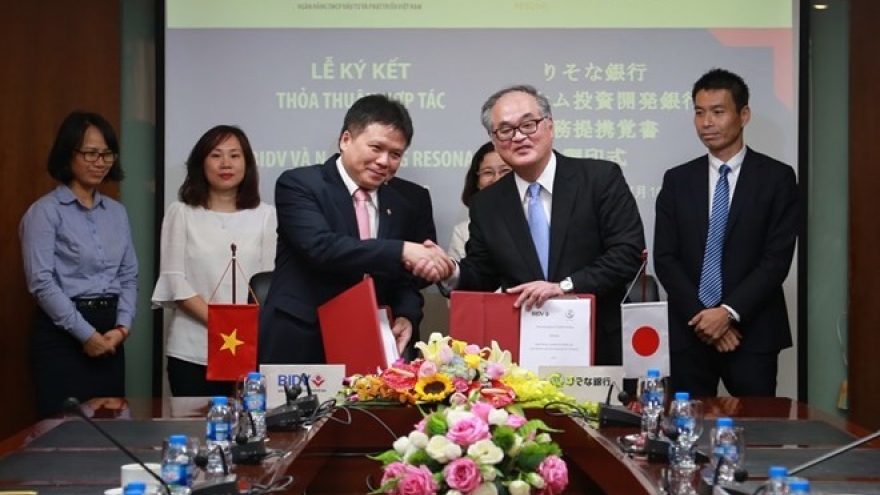10-year economic crisis cycle not on the cards for Vietnam: BIDV experts
Economists at the Bank for Investment and Development of Vietnam (BIDV) have played down the possible repetition of the 10-year economic crisis cycle in the 2018-2019 period, according to a recent report released from its research center.
 |
The economic growth of the country has been maintained quite stably alongside the macroeconomy. Vietnam’s income per capita is on the rise, and its global economic integration has deepened, according to the report.
The Government has not over expanded the credit and investment capital growth and has focused on improving the quality of this growth.
From 2011 to 2017, the annual credit growth was recorded at an average 13.9%, while the rate for gross domestic product (GDP) per capita was some 32.3% per year.
These two figures were much lower than in the previous periods but were more effective, partly thanks to the application of science and technology.
During the period, the nation’s incremental capital output ratio reached 5.3 compared with the 6.29 achieved during the 2006-2010 period.
Labor productivity rose by 5.1% per year, against a 3.45% rise in the previous period. The total factor productivity contributed 31% to economic growth, the highest since 1986.
The major drivers of economic growth – investment, export, industry and private sector business – have witnessed improvements.
Also, the financial and banking system has been consolidated. The system saw a sharp drop in nonperforming loans, from 17.2% in 2012 to 6.7% in June 2018.
The system’s liquidity has been quite stable, as its loan-to-deposit ratio declined from 98% in late 2011 to 87% in late 2017. Besides this, its annual interest rate was stable at around 9.8% in the 2011-2017 period, compared with 12.3% in the 2006-2010 period.
The nation’s macroeconomic indicators have shown positive improvements. The ratio of the State budget deficit to GDP fell from 4.4% in 2011 to 3.48% in 2017, thereby meeting the target of 3.5% set by the National Assembly.
The majority of outstanding loans were allocated to priority sectors such as agriculture, real estate and construction. Loans for the agriculture and rural development sector rose by 25.5% against late 2016 to over VND1.3 quadrillion (US$55.6 billion), making up some 20% of the total loans.
Vietnam has gained an annual trade surplus of some US$2.2 billion since 2012 after a lengthy trade deficit from 2005 to 2011. In addition, the overall balance of payments achieved a surplus of US$12.5 billion in 2017.
Since 2013, the Government, the Ministry of Finance, and the State Bank of Vietnam have taken various measures to put inflation under control.
As a result, the consumer price index in the last four years has been under 4%. The rise in value between the US dollar and the Vietnamese dong has not exceeded 3% per year in the last five years, thus stabilizing the macroeconomy, supporting economic growth and increasing the confidence of businesses and investors.
At the same time, the strong increase in foreign exchange reserves is an important factor contributing to the stability of the exchange rate and the foreign exchange market.
Other major markets such as the stock exchange and real estate have experienced positive changes.
The Government has adopted policies aimed at improving the investment and business environment, leading to a rise in the confidence of residents, businesses and international organizations.
Though the signs of a crisis are different, economists at BIDV stressed that the national economy has been facing many difficulties and challenges, as well as external factors that are more risky and complicated than before. Therefore, the Government should take flexible and effective measures to overcome these obstacles for the sake of sustainable growth.


